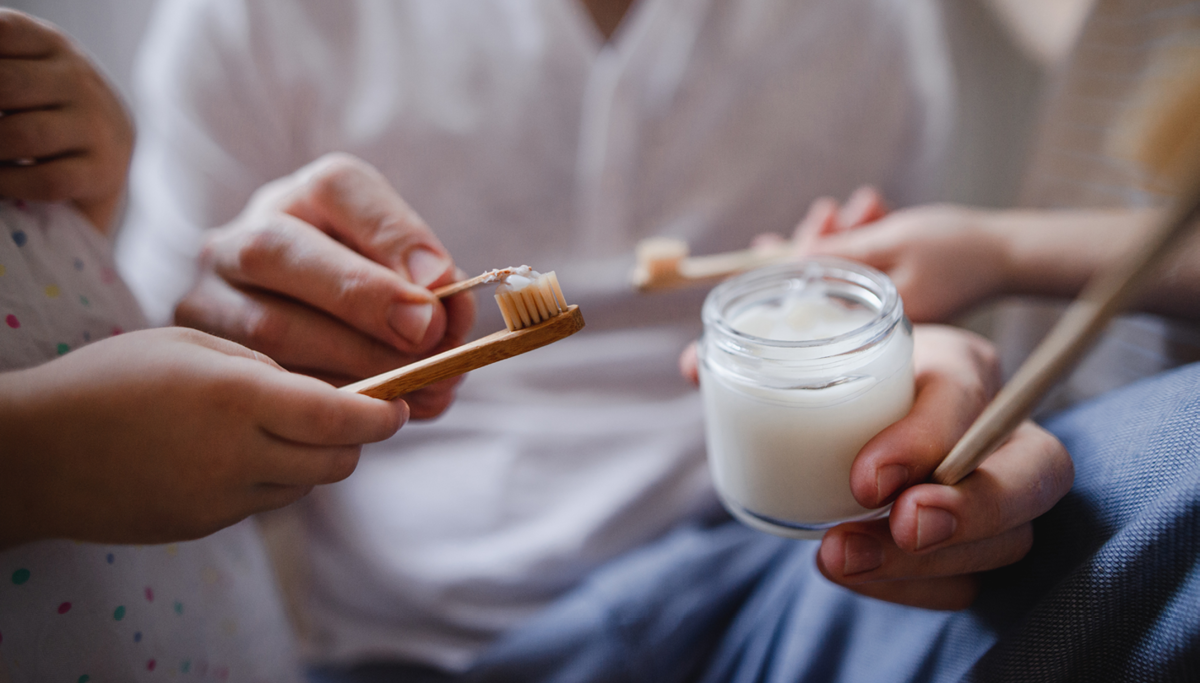The truth about homemade toothpaste
DIY hacks can be great for holiday gifts, seasonings, and body scrubs. However, when it comes to effective homemade toothpaste, it’s important to do your research. Toothpaste is crucial for oral health because its purpose is to prevent cavities and clear harmful bacteria from the mouth.
The truth about homemade toothpastes
Before you collect ingredients to prepare your homemade toothpaste, it’s important to know whether there is scientific backing to them. Just because an ingredient is natural doesn’t mean it’s healthy. Homemade toothpaste can sometimes cause more harm than good to your mouth and smile.
Some common ingredients found in homemade toothpaste recipes include:
Coconut oil: From whitening your teeth to preventing oral health conditions, there are many claims about the benefits of using coconut oil as part of your dental hygiene routine. However, there isn’t enough scientific evidence to prove that using coconut oil, whether in toothpaste or oil pulling, is an effective dental hygiene practice.
Charcoal: Charcoal toothpastes have recently gained popularity in popular culture for their claim to whiten teeth. However, using charcoal in your toothpaste may do more harm than good.
Scrubbing your teeth with abrasive materials like activated charcoal powder may seem like it would polish away stains. However it could damage enamel and more. A literature review published in the Journal of American Dental Association cautioned against using charcoal on your teeth.
Chocolate products: Many DIY toothpaste recipes recommend using chocolate products, such as cocoa nibs, to promote remineralization of the teeth. Theobromine, a chemical found in cocoa nibs, has been shown to possess some remineralization properties, but it was found to be the least effective when compared to other chemicals that have remineralization properties, like fluoride.
Pro tip: Always talk with your dentist before introducing trendy ingredients and products into your dental hygiene routine.
Ingredients to look for in effective toothpastes
To be considered beneficial for your oral health, your toothpaste should contain ingredients that do at least one of the following:
· Fight tooth decay. This is usually done with fluoride, a mineral that is known to strengthen tooth enamel and fight cavities.
· Prevent plaque and gingivitis.
· Desensitize sensitive teeth.
· Whiten teeth that are stained.
To ensure your toothpaste is of the highest quality and effectiveness, make sure it has the ADA Seal of Acceptance. The ADA states that “A product earns the ADA Seal of Acceptance by submitting data and publications to the ADA Council on Scientific Affairs to use in making a determination of whether the product meets the prespecified requirements for safety and efficacy.”
For a full list of ADA-accepted toothpastes, visit the Accepted Products list on the ADA website.
It's helpful to know what active ingredients the ADA recommends in toothpaste.
For example, some cavity-fighting ingredients have different names. You may see sodium monofluorophosphate, sodium fluoride, or stannous fluoride on the ingredients label. These all fight cavities and are the only ingredients the FDA certifies as preventing cavities.
All ADA-Accepted toothpastes must also contain fluoride.
The bottom line on homemade toothpastes
While the idea of homemade toothpaste may seem appealing, it's crucial to approach oral care with a balanced perspective. Homemade toothpaste has natural ingredients, but it may lack the essential components needed for effective dental hygiene. Choosing a professionally formulated toothpaste will help you maintain strong, healthy teeth and gums. It provides a level of protection that homemade toothpaste alternatives may not guarantee.
*Updated March 2024

